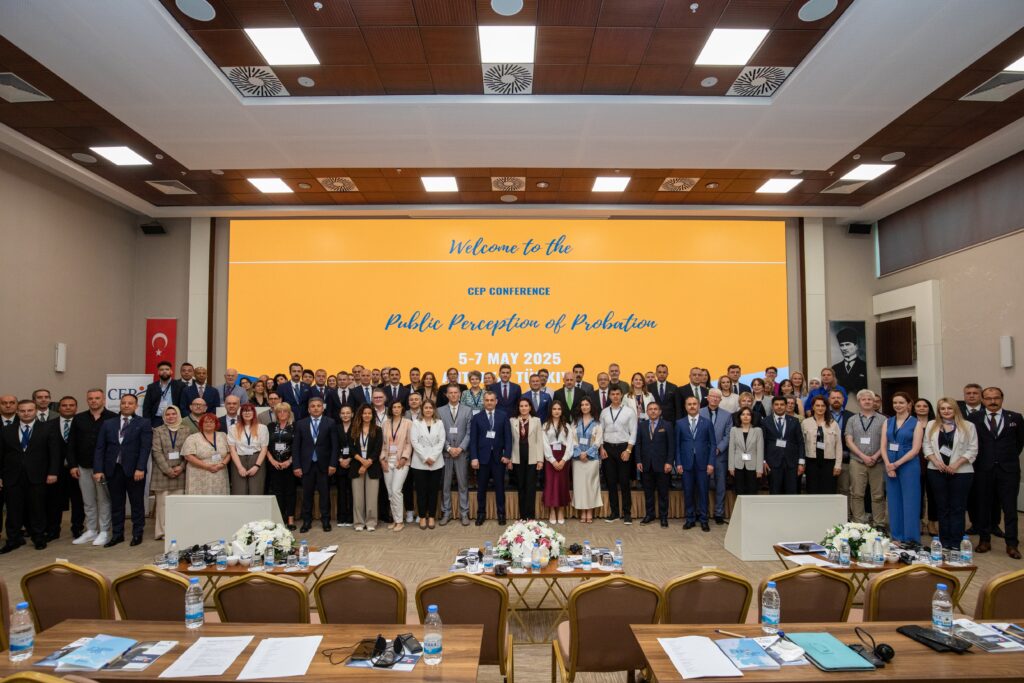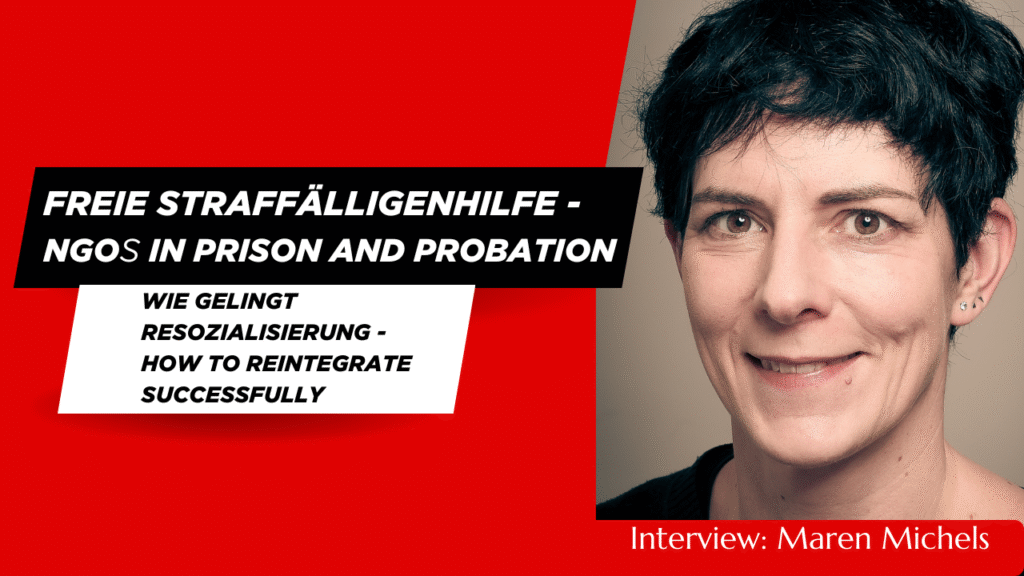Previous Article
News
Dutch Suspects of Terrorist Activity: A Study of Their Biographical Backgrounds Based on Primary Sources
European countries had and have to deal with a lot of terrorist attacks in the last couple of years. It is alarming that some of the most successful terrorist were already on the radar of the intelligence agencies. Predicting who will engage in terrorism is hampered by the absence of a typology of terrorists. Present and historic research agree that terrorists differ greatly in backgrounds, motivations and personality traits. In their article ‘Dutch Suspects of Terrorist Activity: A Study of Their Biographical Backgrounds Based on Primary Sources’ Maarten van Leyenhorst and Ada Andreas analyse the biographical backgrounds of clients of the Dutch Probation Service that have been suspected of terrorist activity.
Maarten van Leyenhorst is a former probation officer of the TER- team (Terrorism, Extremism and Radicalisation) within the Dutch Probation Service. Ada Andreas was involved in this special unit as a Senior Policy Advisor. The TER-team focusses on the risk-assessment of suspects and the supervision of terrorist offenders within the Dutch Probation Service. Both authors have years of experience working for this specialised unit. Their article is based on Maarten’s research for his thesis “Characteristics and Motivations of Dutch (suspected) Terrorists” (Van Leyenhorst, 2016). Their aim was to produce a structured overview of the biographical backgrounds of the suspected terrorists and contribute to the debate on the management of terrorist offenders.
Why is this research important?
Maarten van Leyenhorst: “There is more secondary research available than research based on primary resources. The Dutch Probation Service has a lot of information available about this group of offenders. It gives us a good insight in who we are dealing with.”
Ada Andreas: “There is not much information or research available about this target group yet. There is a lot we don’t know and that is why we need to continue to learn about and research this certain group of offenders.”
The research
By using primary-source data, this study adds new insights to existing information and historical findings. The authors had access to official police and prosecutor’s data. Information on certain characteristics and motivations of twenty-six Salafi-Jihadi clients were analysed.
Is it possible to identify a certain pathway these offenders go through?
Maarten van Leyenhorst: “Establishing pathways from from 26 files out of such a heterogenous group, has unfortunately not been possible. Also within our research sample, backgrounds and motivations differed greatly. You will need several hundreds of case files to determine overlapping trajectories. We did, however, find some overlapping.”
Ada Andreas: “It is difficult to identify a certain pathway. You also need to keep in mind that these pathways are changing when time passes as well. We see that the feeling of being part of a group is very important for them, but there is no recipe for a terrorist.”
What outcomes of the research you have done, were the most interesting?
Ada Andreas: “I thought that the roll of the family was very interesting. In many of the cases they warned the authorities, because they were afraid that their child was getting involved in terrorist activity. The response of authorities was often not very adequate. The result was that they did not get the help that was needed and lost their confidence in the authorities. This is something that needs to change. The prevention of radicalism is very important.”
Maarten van Leyenhorst: “I completely agree with Ada. We need to invest in facilitating gatekeepers and bystanders. Families are in the frontseat when it comes to identifying early radicalisation. For example, we identified that almost none of the offenders were raised according to strict Islamic guidelines. Despite the absence of a religious background, many families started to notice how their children started to impose strict religious guidelines in their families’ lives. It was furthermore noteworthy that the majority of the group grew up without a father being present and we were struck by the high presence of family relations, especially brothers and wives. We saw female extremists recurring in many files, but at the same time witnessed the inability to prosecute them successfully. Based on our experience, females conducted very specific tasks in the networks, such as recruiting and facilitating contact between terrorists. However, it has proven to be difficult to find enough legal evidence to convict females for terrorist activity.”
Future research
Will you continue to do research on this topic in the future?
Maarten van Leyenhorst: “I’m not a part of the TER-team anymore, but I am currently active as Trainer and Researcher at the Dutch Institute of Forensic Psychiatry & Psychology (NIFP) Here I am involved in two European Projects on violent extremism and I continue to do research on this topic.”
Ada Andreas: “For my master thesis I will continue to do more research on this topic. I will be looking at the different paths the offenders go through in their lives and I want to discover at what point they get involved with terrorist activity.
Are you interested in reading ‘Dutch Suspects of Terrorist Activity: A Study of Their Biographical Backgrounds Based on Primary Sources’? Please click on the link.

Related News
Keep up to date with the latest developments, stories, and updates on probation from across Europe and beyond. Find relevant news and insights shaping the field today.
Recap

CEP Events, Communication and Awareness-Raising
Recap: Conference on Public Perception of Probation
06/05/2025
From 6 to 7 May, the CEP Conference on the Public Perception of Probation in Europe took place in Antalya, Türkiye, bringing together over 100 participants from more than 20 countries. The event offered space for open discussion, exchange of experiences, and practical ideas on how probation is seen and supported across Europe.
New

Probation in Europe
New Interview Online with Felix Gerike, a survivor of a knife attack
01/05/2025
What do victims of violent crime need to recover—and what can be done to prevent such attacks?
In the latest episode of Division_Y, Jo Tein, CEP board member, speaks with Felix Gerike, a survivor of the 2023 Brokstedt knife attack in Germany. Felix played a crucial role in disarming the attacker, helping to prevent further harm. He shares his personal experience, reflections on victim support, and his views on justice and policy responses to violent crime.
Probation in Europe
New Executive Summaries for the report on Building Probation Capacity in Spanish and Italian
01/05/2025
Updated

CEP Board, Probation in Europe
New Interview Online: Maren Michels – The Role of NGOs in Probation
22/04/2025
In the newest Division_Y interview, Maren Michels, director of the Hamburg Welfare Association, shares her experiences and reflects on the vital role that NGOs play in supporting people during and after incarceration.
New

CEP Events
Want to Win a CEP Award? See How Finland Did It – Apply for 2025!
22/04/2025
We’re excited to share an exclusive interview with the winners of the Development of National Probation Services Award from the CEP Awards 2022:
The Prison and Probation Service of Finland.
New

Volunteers
International Day for Community Volunteers
17/04/2025
17 April – International Day for Community Volunteers!
Today, we celebrate the inaugural International Day for Community Volunteers Supporting Offender Reintegration—a day dedicated to acknowledging the vital contributions of volunteers who assist individuals in their journey back into society.
This initiative was launched during the 2nd World Congress for Community Volunteers, held alongside the 6th World Congress on Parole and Probation in The Hague (16–18 April 2024).
At CEP, we’re proud to support the official Declaration on the International Day for Community Volunteers. We’re also actively involved in the CoPPer project—a European initiative aimed at promoting community participation in probation services. CoPPer focuses on training volunteers to support individuals under supervision, helping them access education, employment, and community connections.
A heartfelt thank you to all the community volunteers out there—your dedication makes a real difference.
Subscribe to our bi-monthly email newsletter!
"*" indicates required fields
- Keep up to date with important probation developments and insights.

